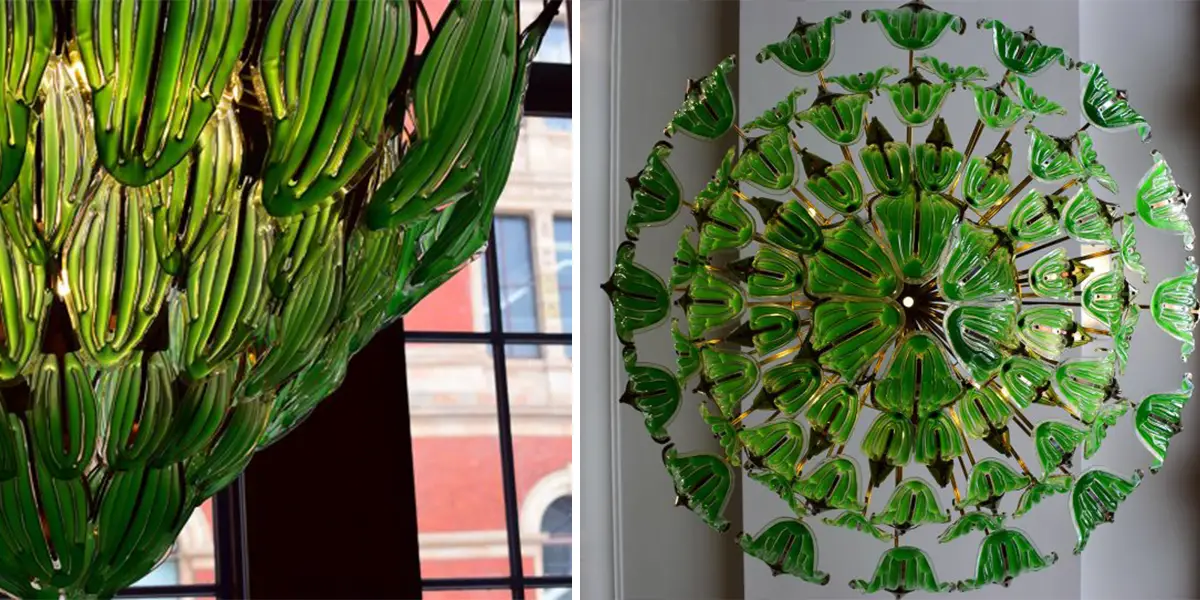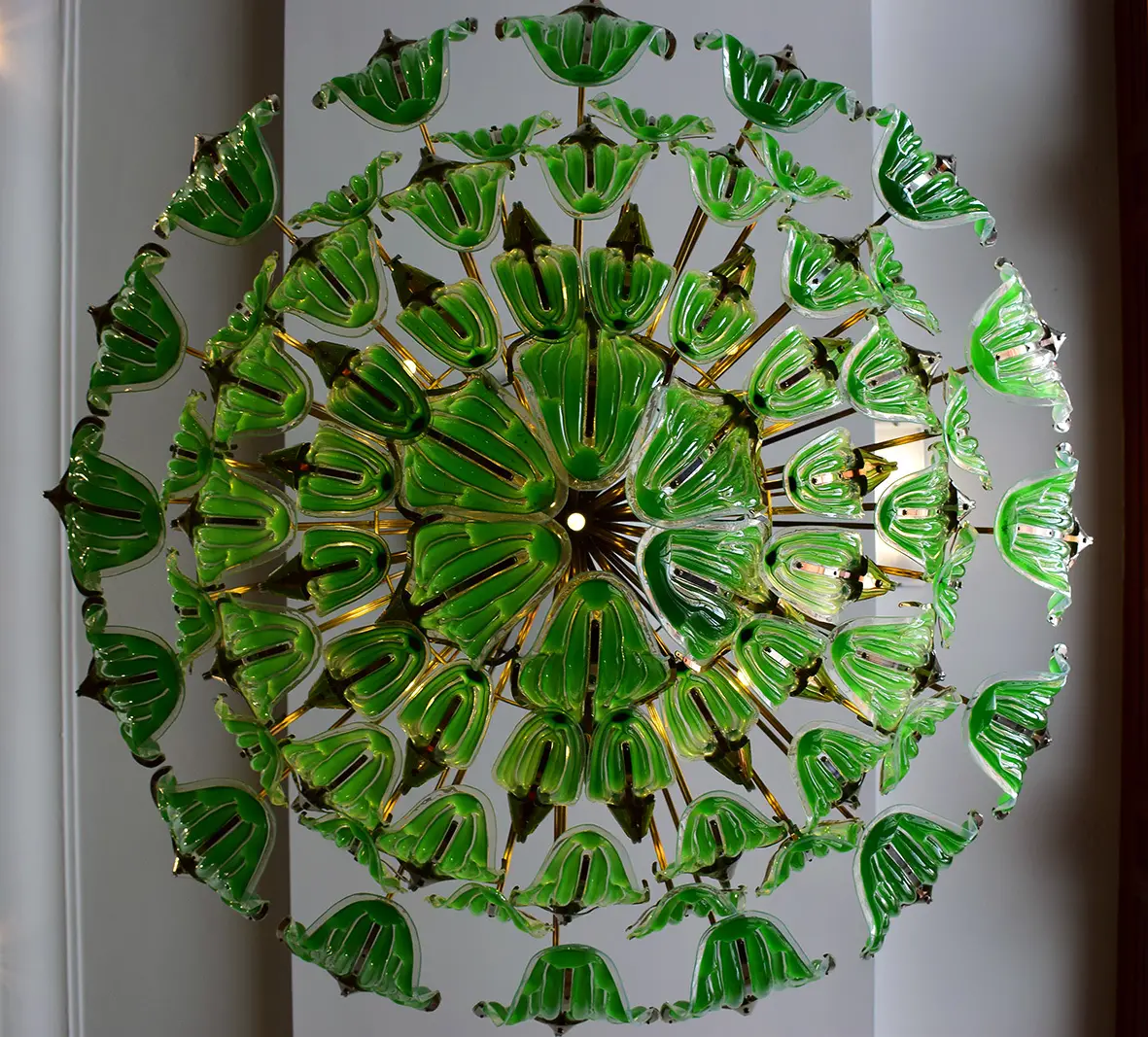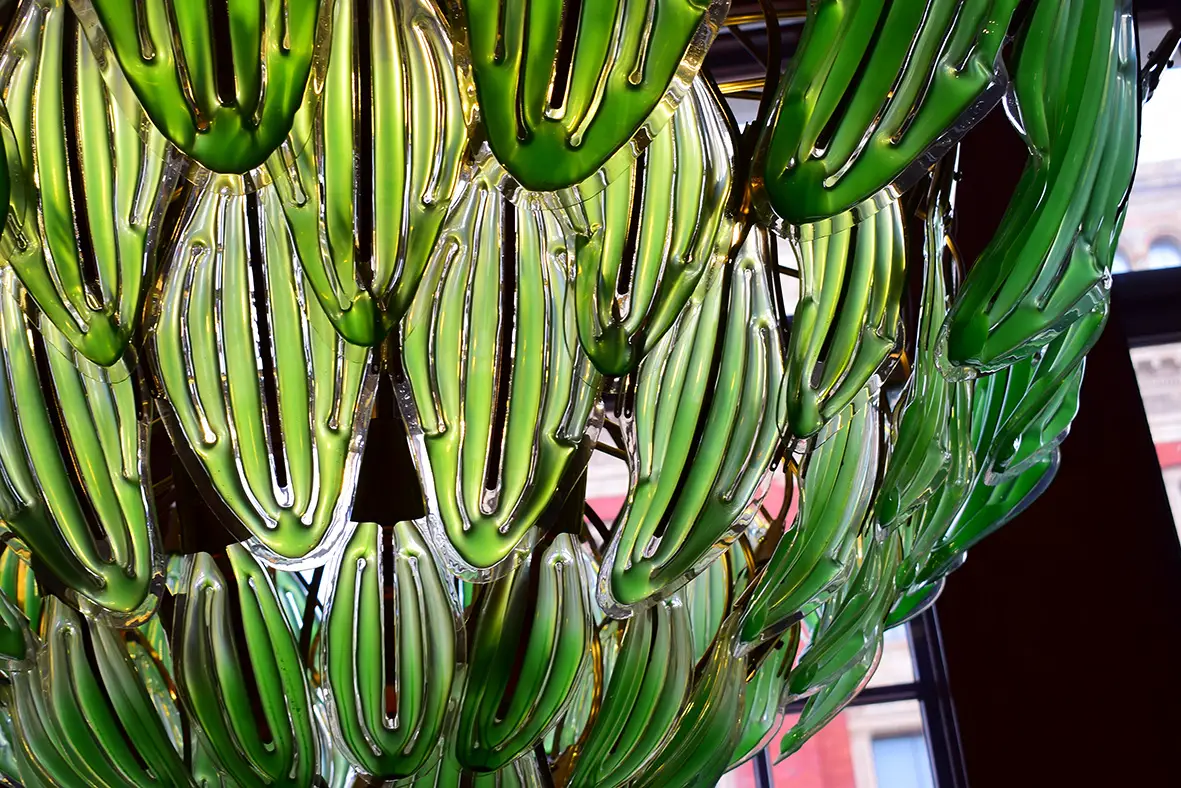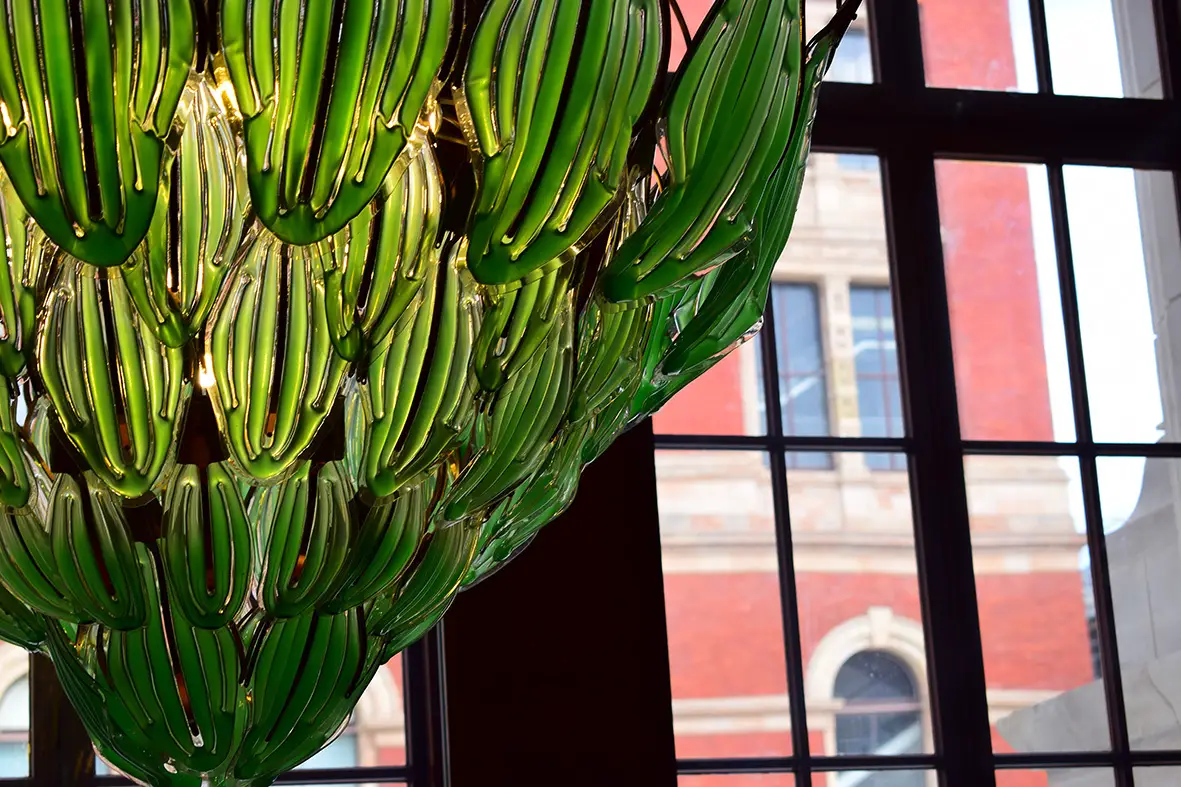
Last year, Julian Melchiorri, a designer and engineer from London, unveiled a living chandelier that is powered by green algae. Melchiorri showed off his invention at the London Design Week, to give the public a glimpse into his “Bionic Leaf’” technology.
“The metal structure is entirely hand-made and burned-colored. Each structure holds a single leaf module of 3 different sizes that repeats it-self 70 times on a radial array; similar to how nature shapes plants and shells,” Melchiorri says.
The leaves are also made entirely of sustainable materials.

Through many years of research, Melchiorri has been able to develop a bionic-leaf that harnesses the natural power of photosynthesis. The design is called “exhale” because, in addition to lighting up the room, it also purifies the air.
The chandelier is connected to a life support device which continually nourishes the microorganisms.

Melchiorri explains how the device works:
“Exhale is also the first living object which continuously grows while performing biologically-driven depurative functions. The light of the chandelier illuminate the space but also stimulates photosynthesis performed by tiny microalgae, this living microorganisms feed on carbon dioxide while releasing breathable oxygen into the room. This biological process performed by the chandelier establishes and explores a new symbiotic relationship between object and people where life-giving resources are constantly exchanged, and where each other waste enables respective metabolic processes. This exchange recalls how biospheric systems work, where waste ultimately doesn’t exist but is a valuable resource for other elements in that system.”

This project is merely a prototype for a technology that could potentially improve the lives of millions while cutting down on waste and the use of toxic chemicals. Melchiorri founded a biochemical technology company called Arborea where a team of scientists and engineers work to develop new uses for the “Bionic Leaf,” while perfecting the technology.
Arborea’s mission is to “help solve resource scarcity and global warming on a massive scale by utilizing the oldest and most important chemical process on Earth, photosynthesis.”
Melchiorri’s team is also responsible for developing the “Pelican,” a drone rescue system.
You need to be a member of Ashtar Command - Spiritual Community to add comments!



Replies
Another good idea ...could be used in hospitals, schools, shopping centres, churches and temples and a lot of other places